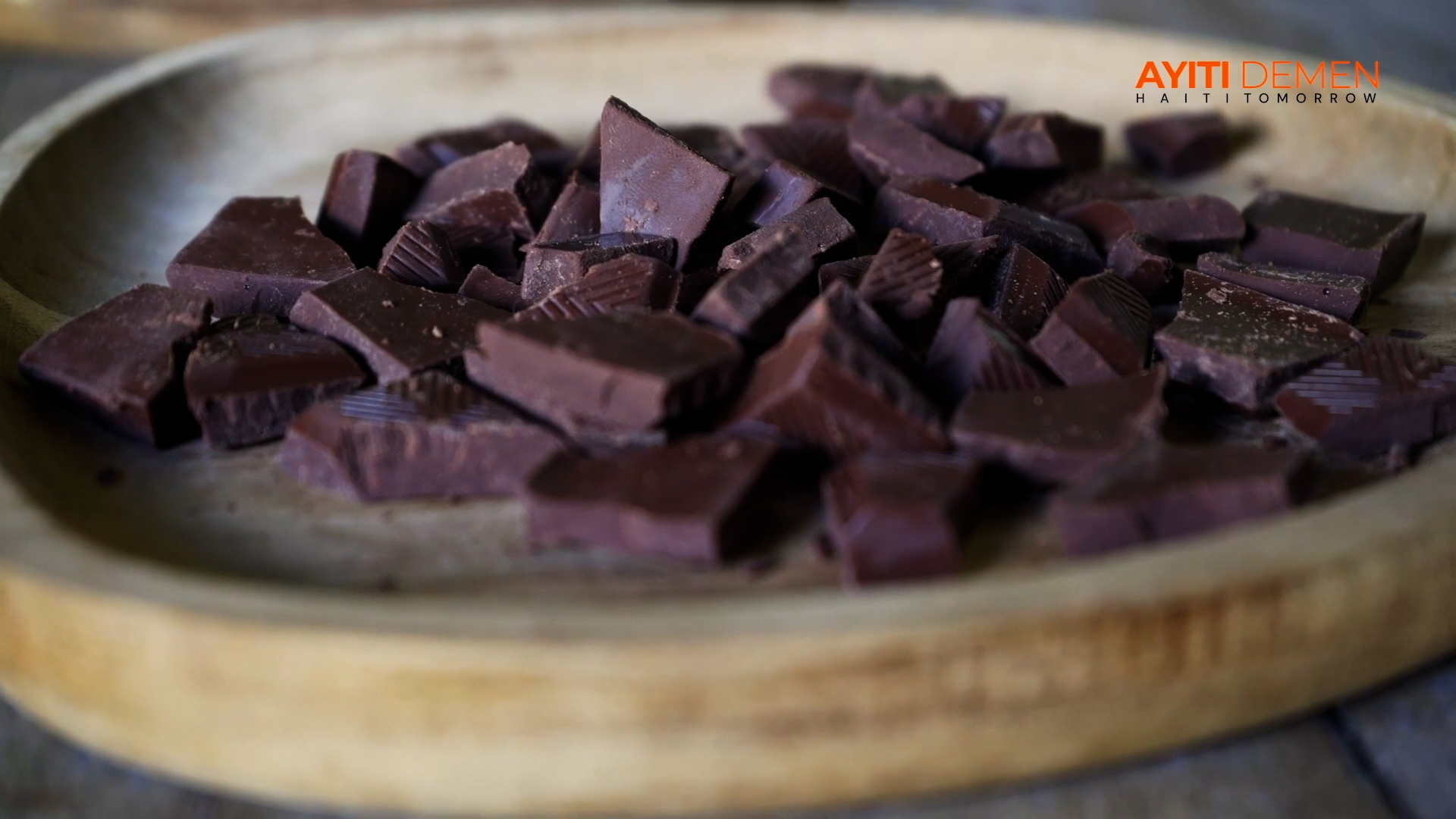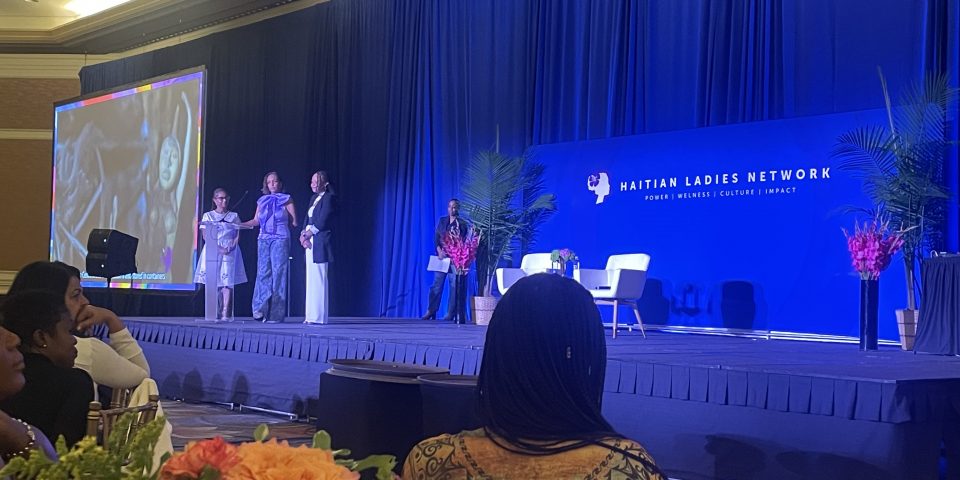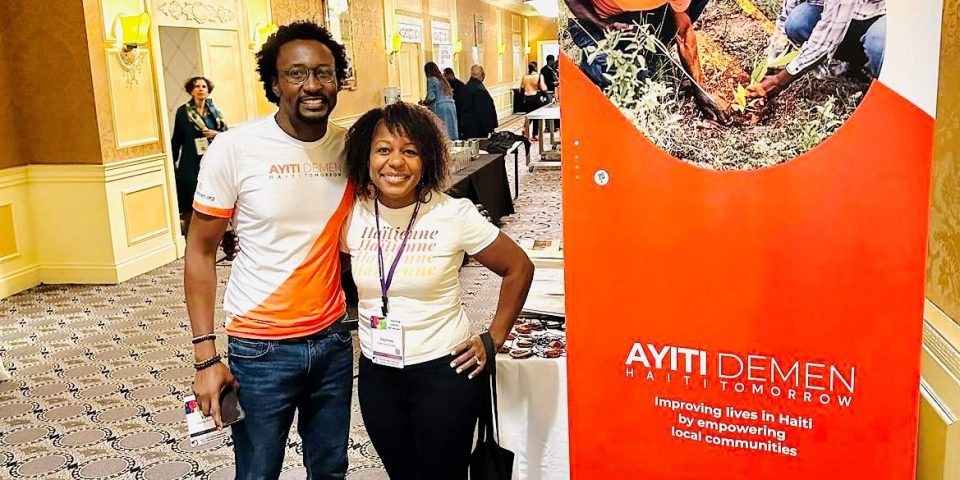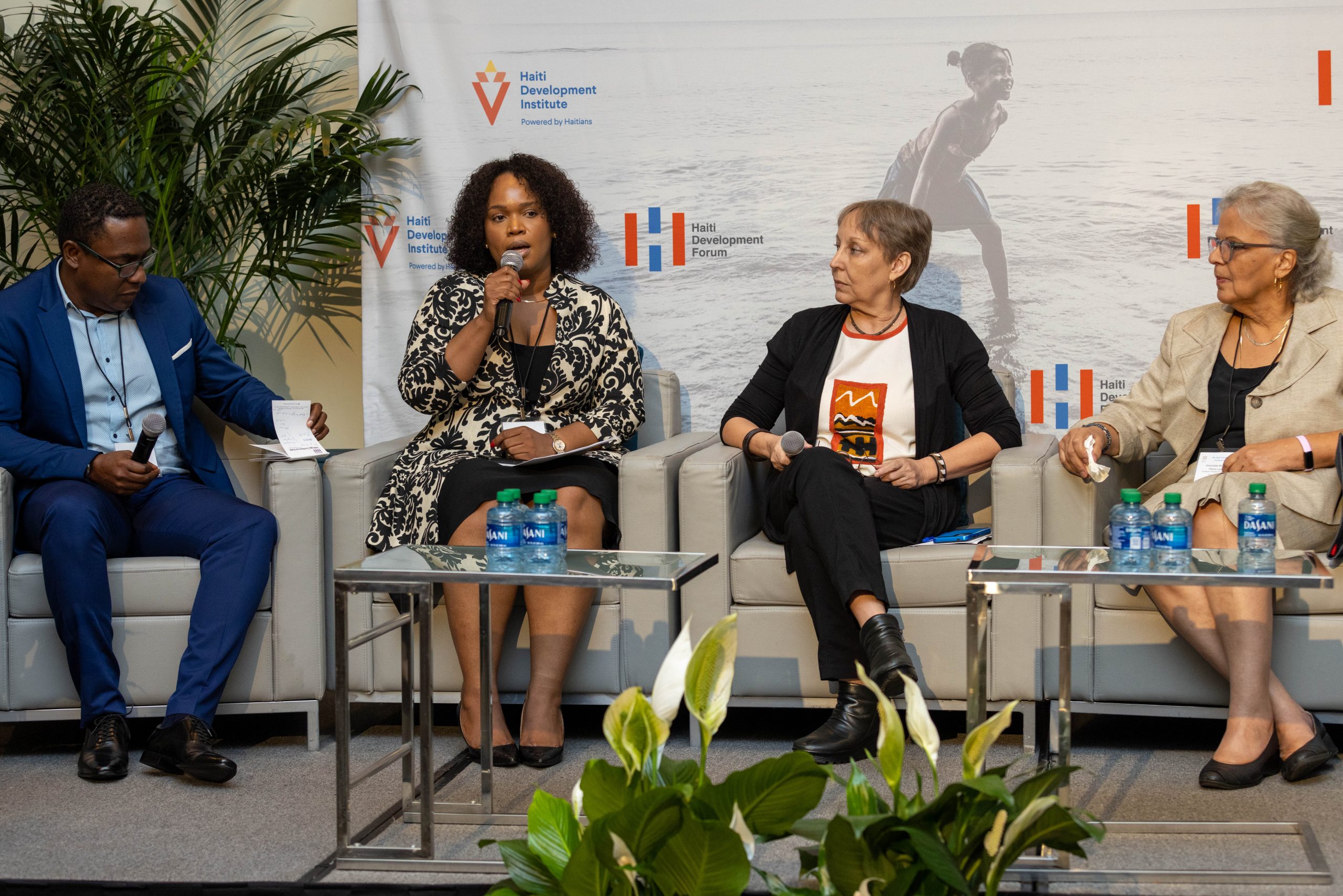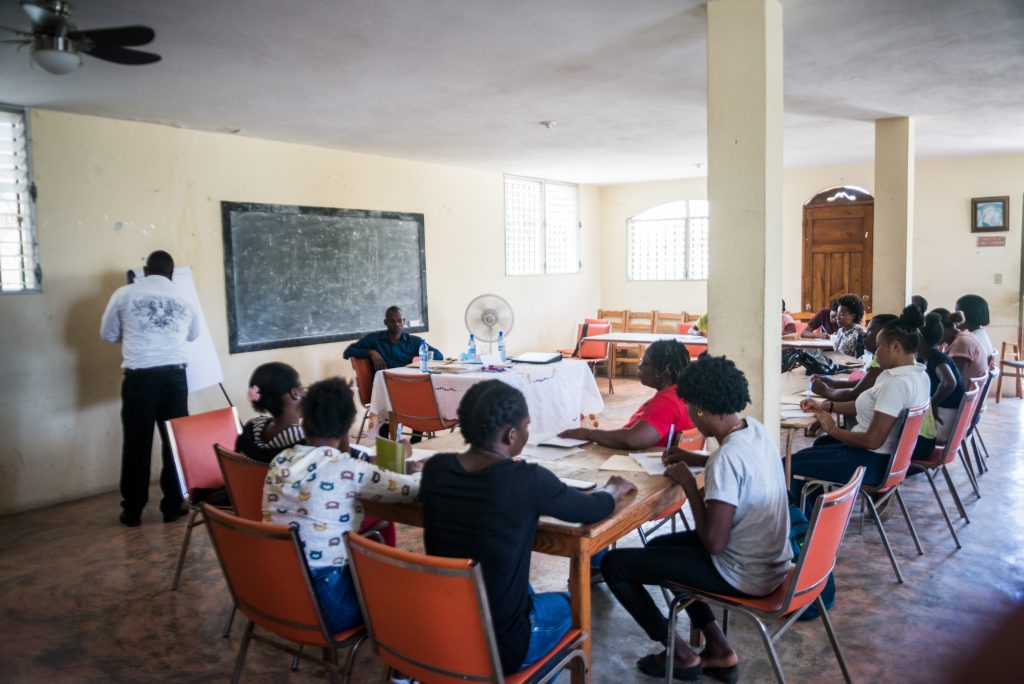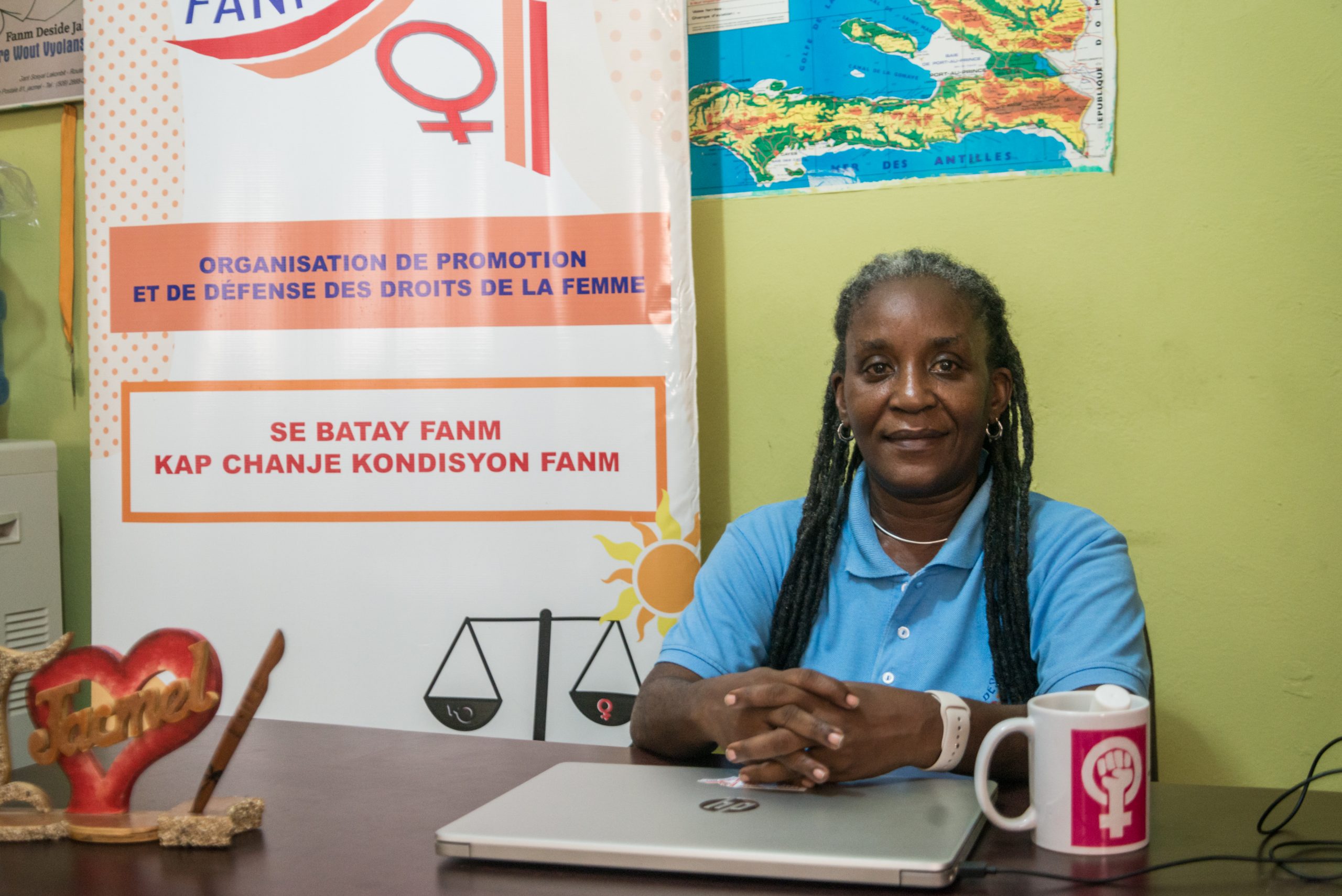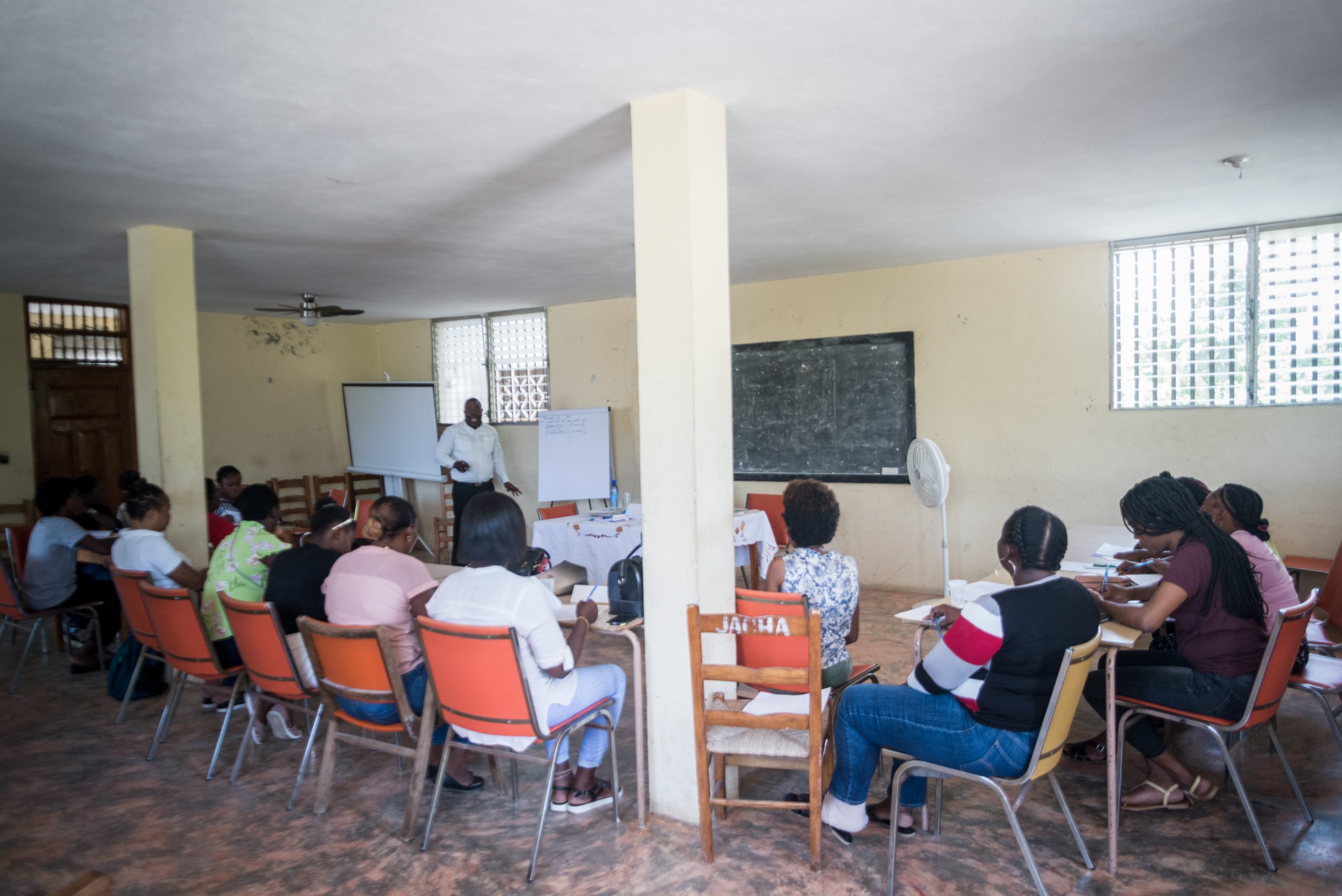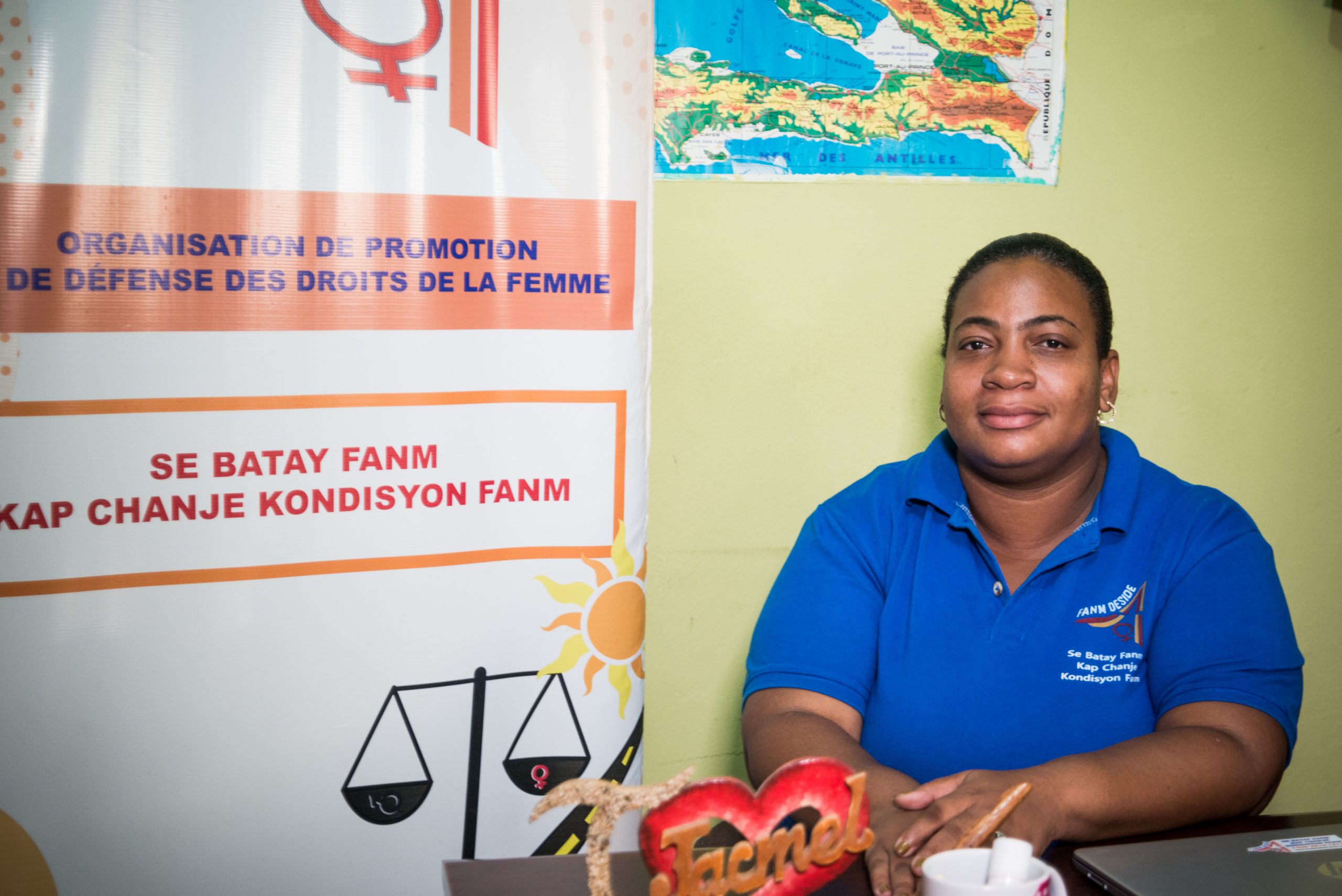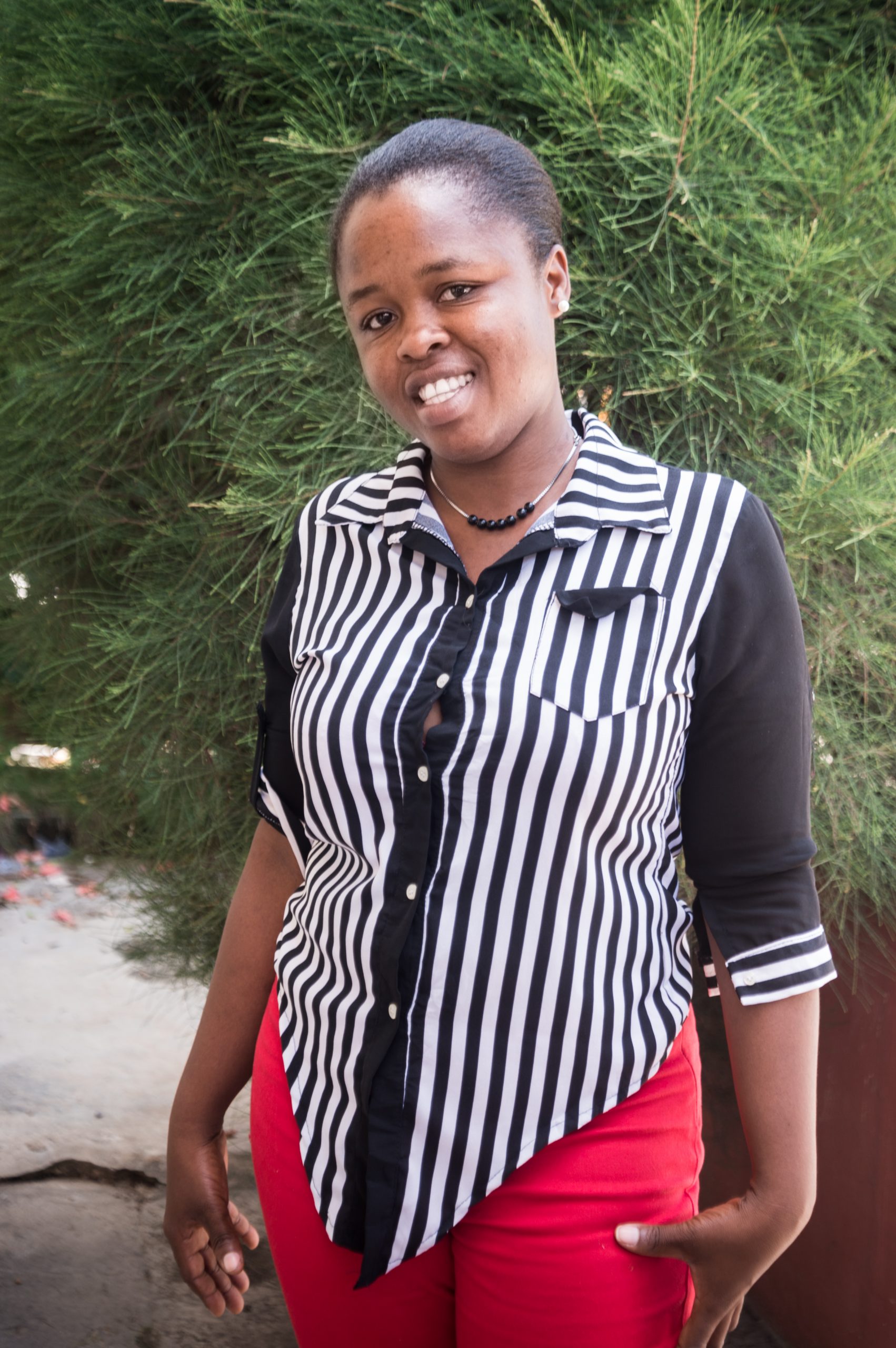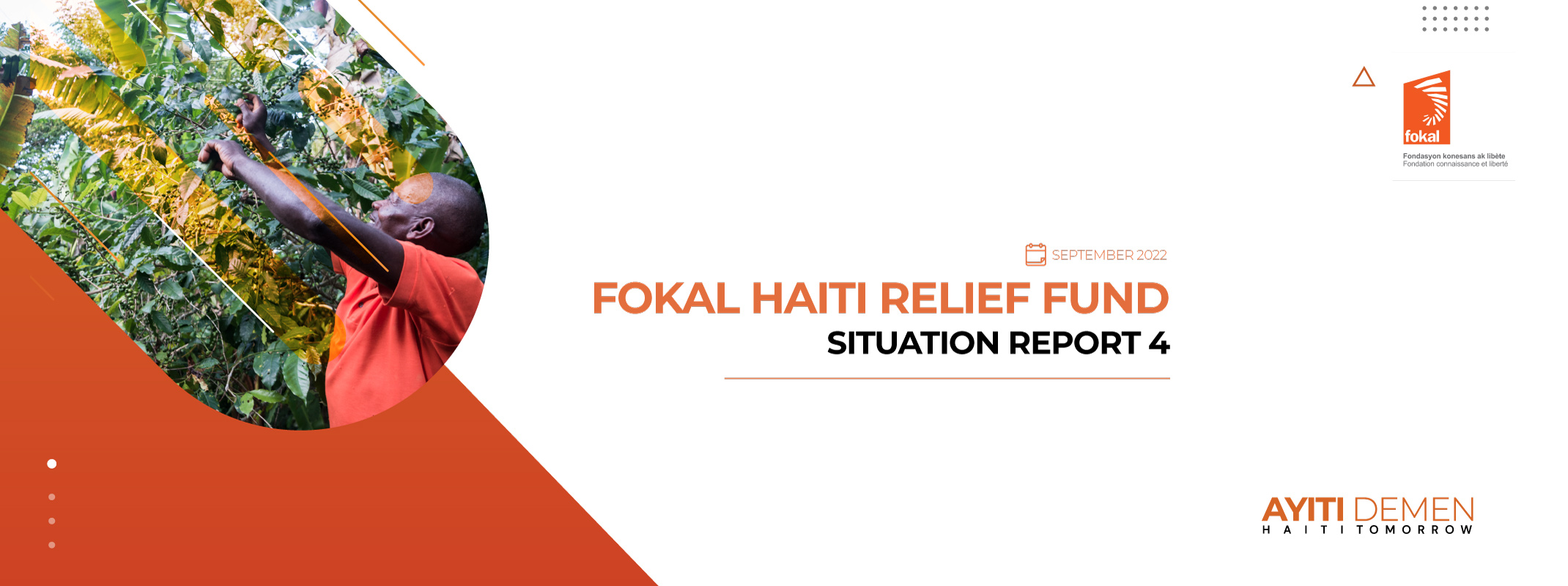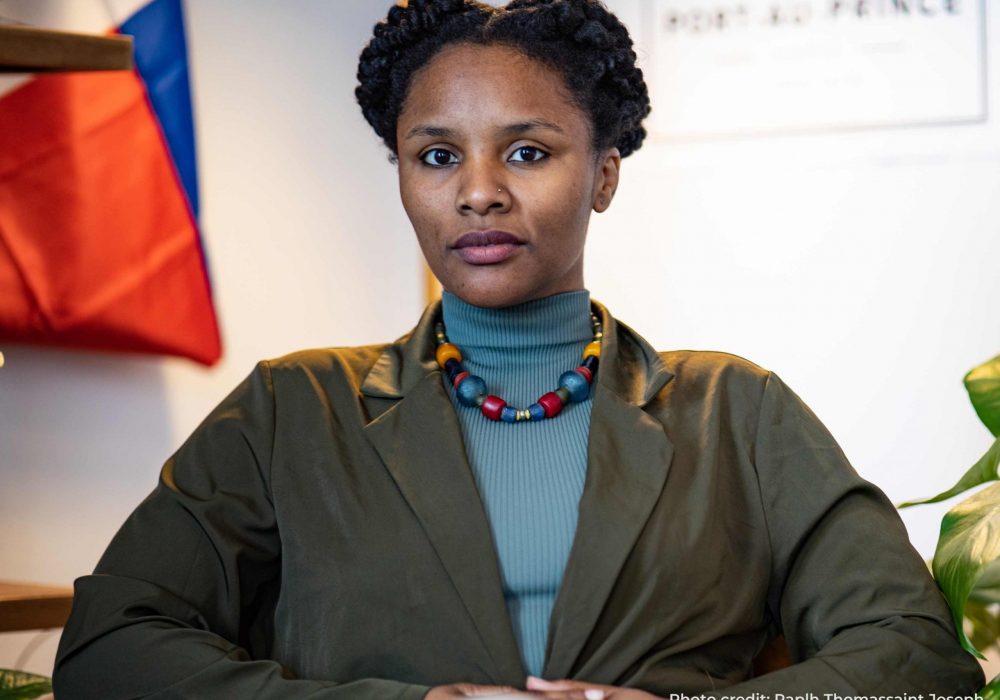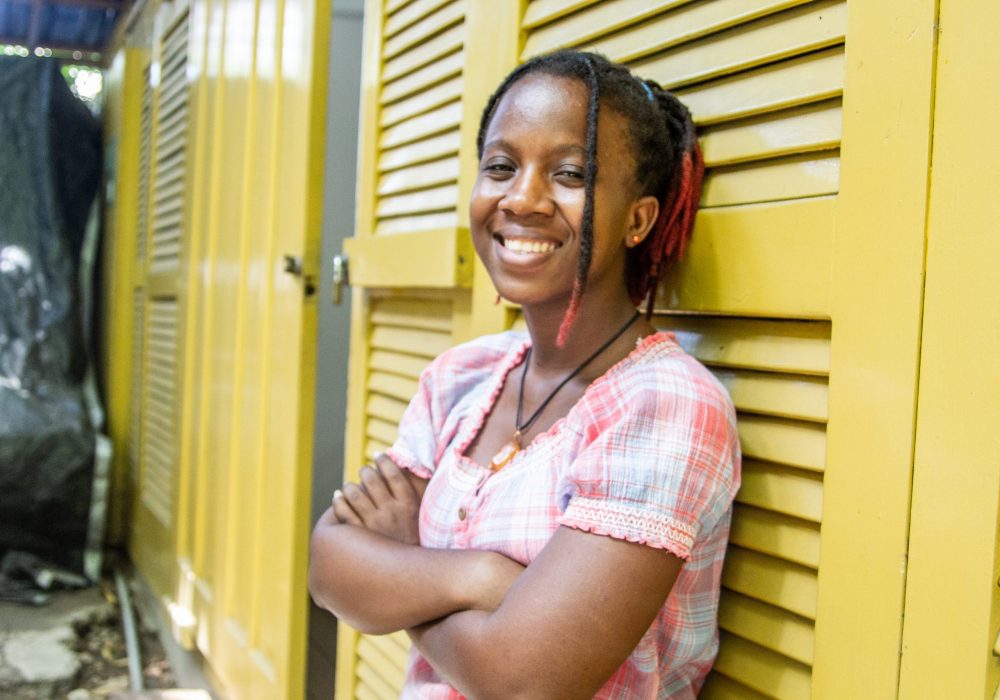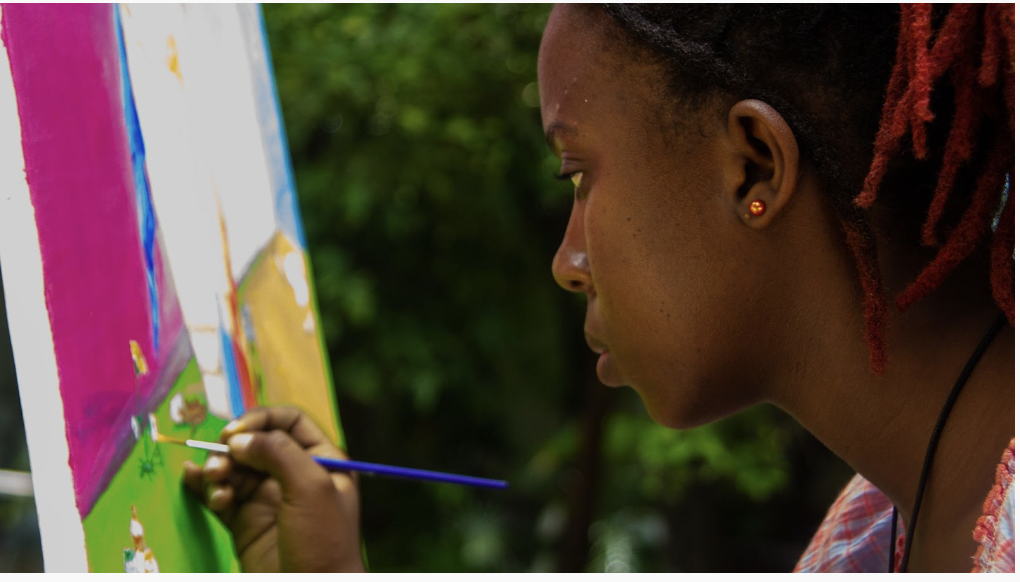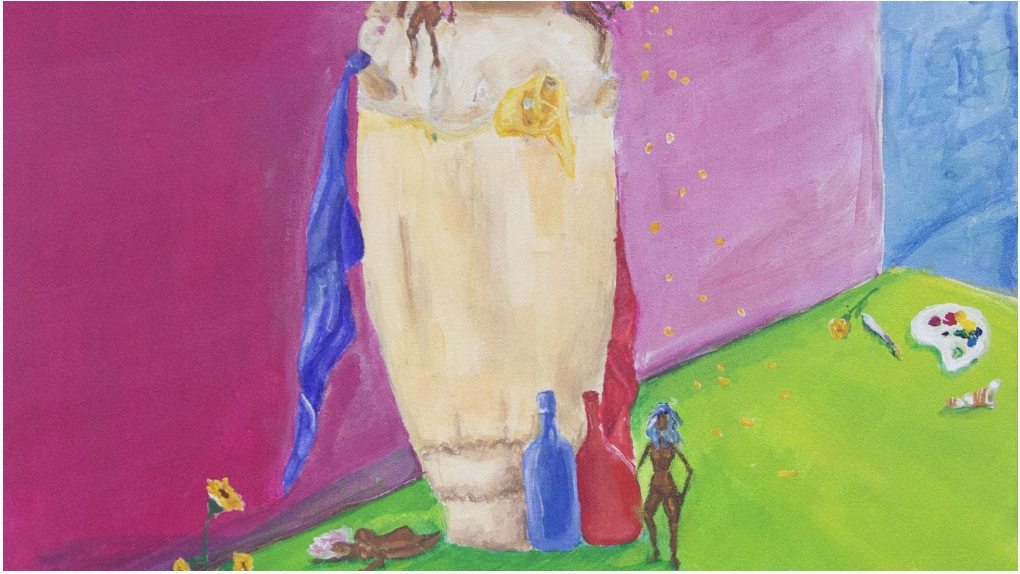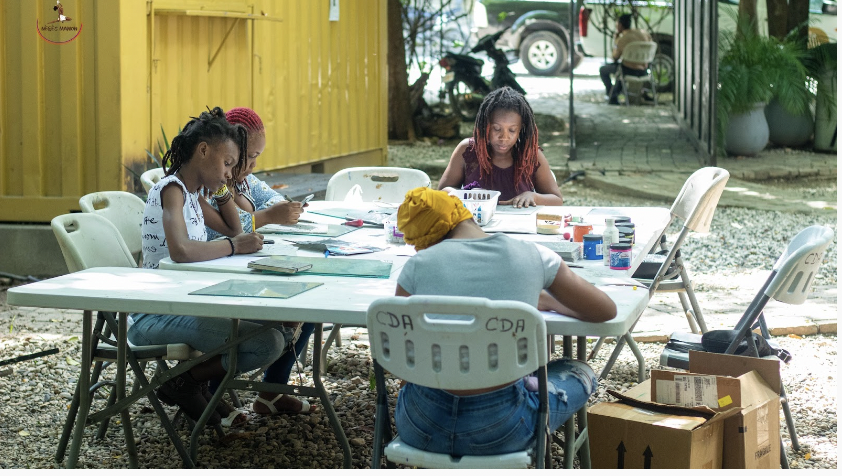stories
Building Community Centers in Rural Haiti
april 05, 2024 | Ayiti Demen
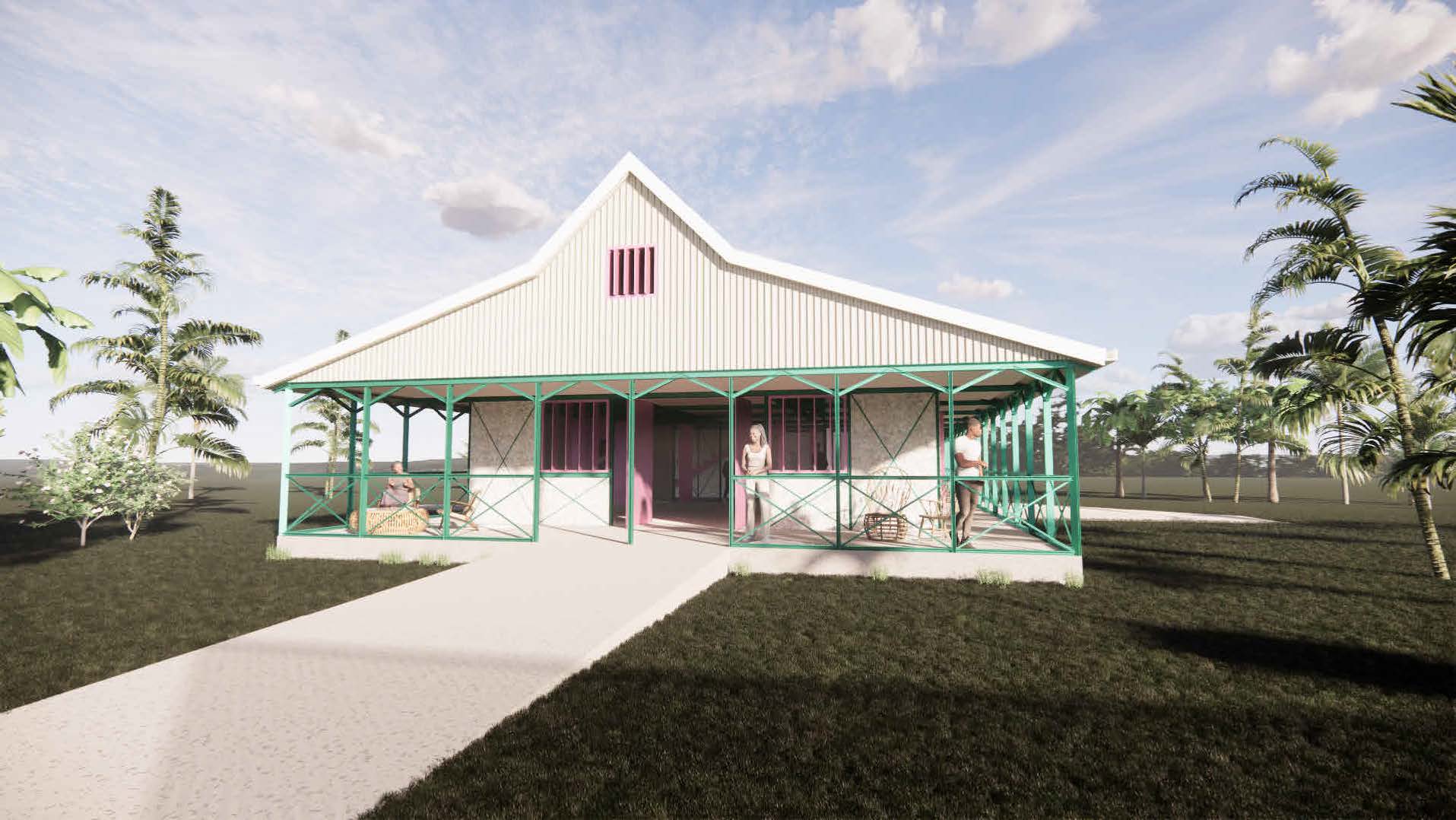
Five rural areas in Haiti will soon have a community space where they can meet, relax, store seeds and goods, and learn. Ayiti Demen’s board chairperson, Michèle Pierre-Louis, led a delegation to several towns in the Grand Sud region of the country from February 13 to 17, 2023 to present and discuss the concept of these community centers with local residents and community leaders.
The idea for this project came about in the aftermath of the devastating earthquake in August 2021, when several local organizations approached FOKAL for support in the rebuilding of their community. “It was difficult to build a house for each family,” said Madame Pierre-Louis during a community meeting in Barradères. “We wanted to do something that would serve the whole community.”
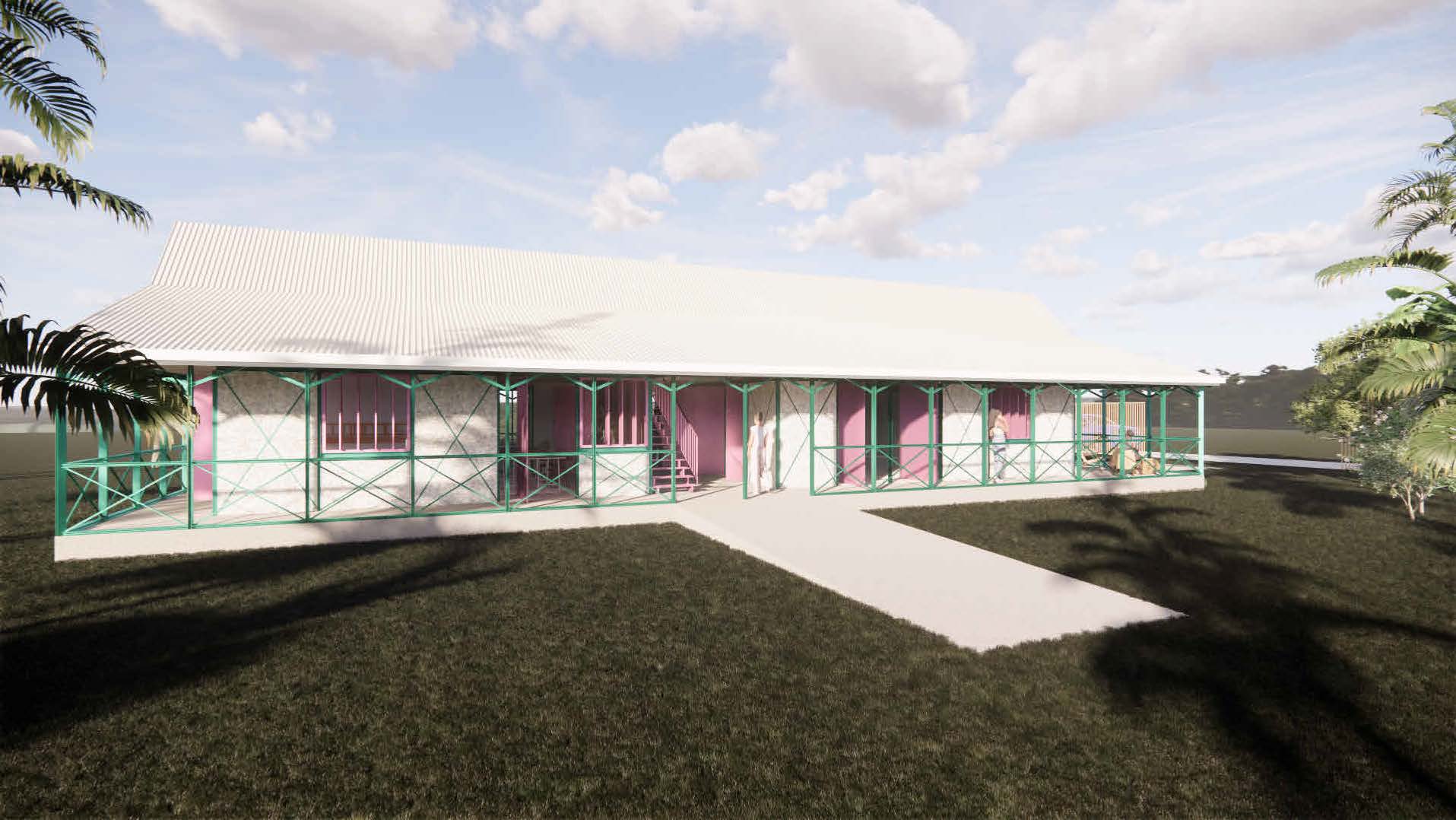
For now, five of these multi-purpose buildings will be built, with some already under construction. They will include training rooms, meeting spaces, performance venues, and lodging for community members. Andrea Panizzo, an architect who has been working in Haiti for 13 years, was selected as the design architect for the community centers. Two center models, incorporating typical Haitian architectural elements and using more efficient steel to withstand earthquakes, have been created based on community input.
The Open Society Foundation and SOKA Gakkai have provided the financial resources for this project, while local organizations have donated the lands for the construction of the centers. Mrs Pierre-Louis is calling for community involvement throughout the construction process. “It is a local effort, with local skills, for local use,” she said.

